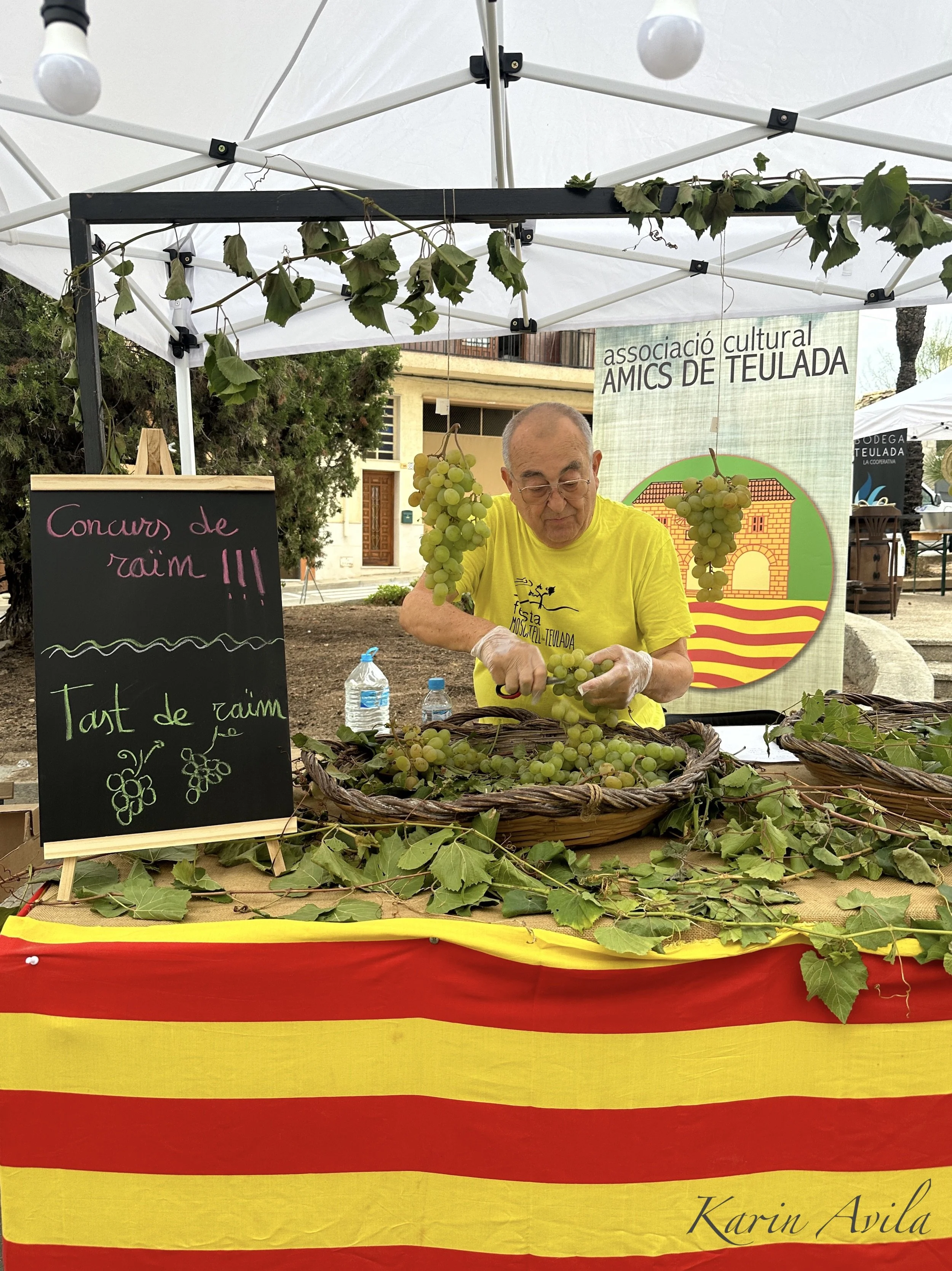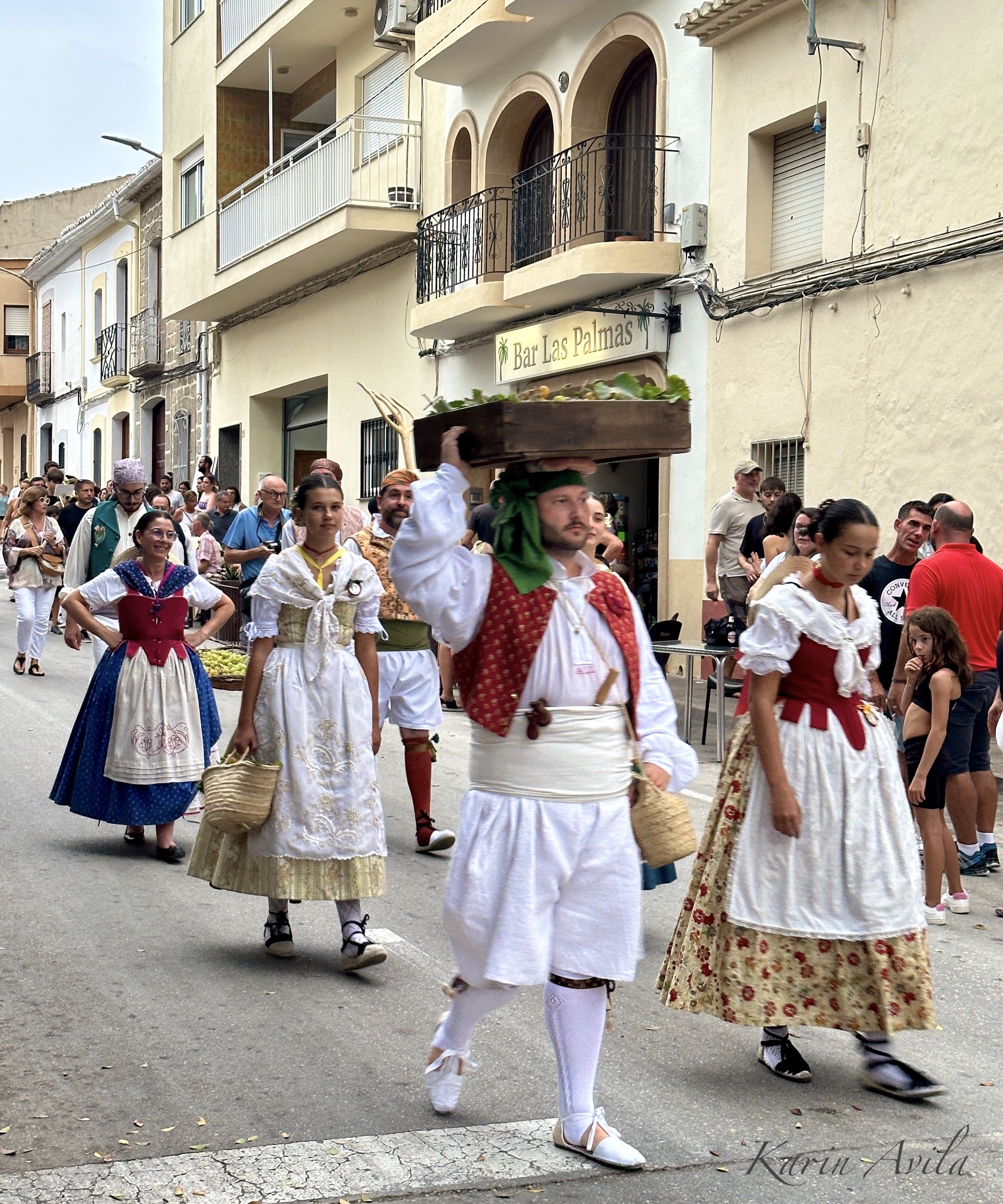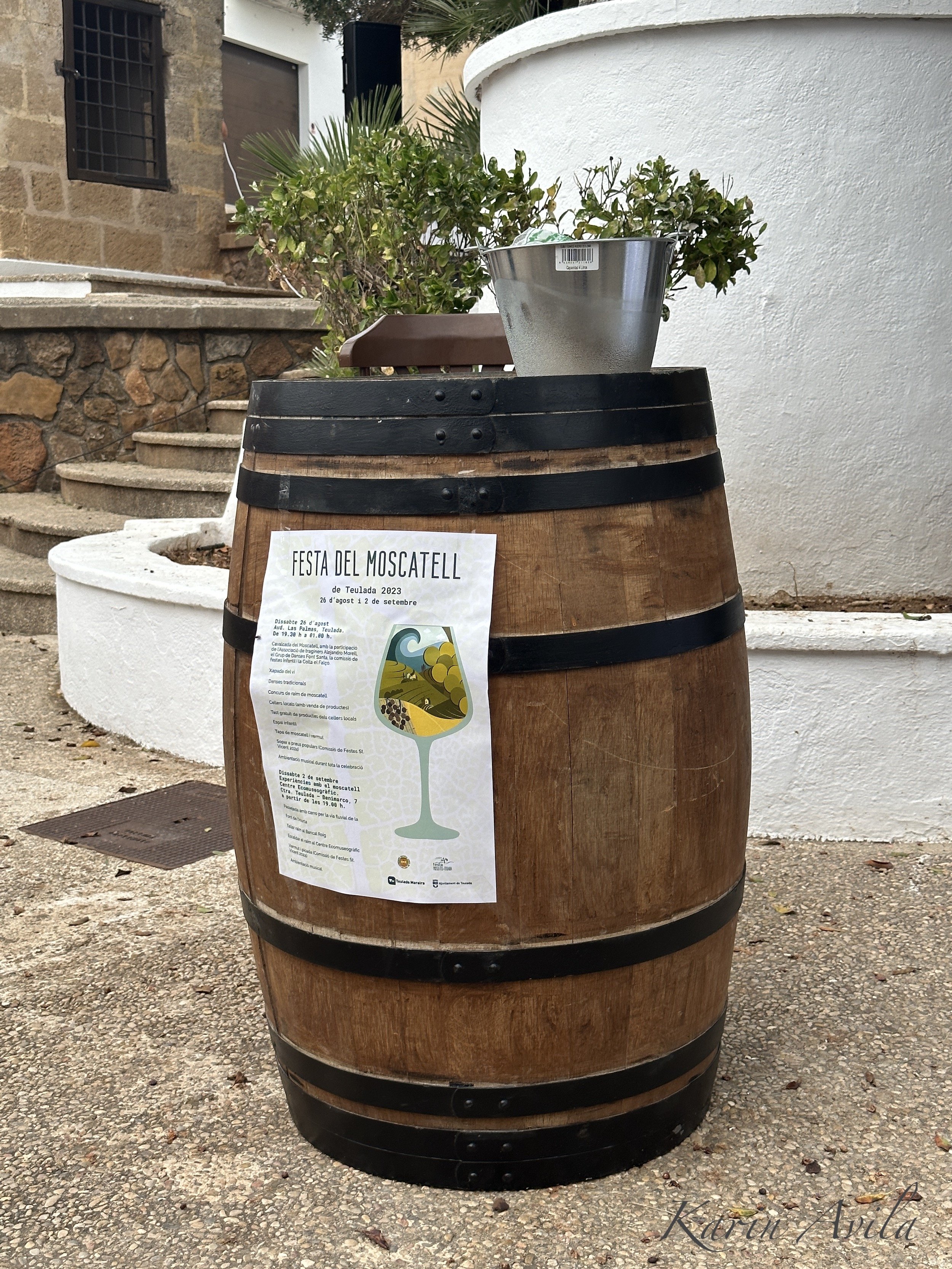The Grape of Strath
In the region of Valencia, there’s a little village called Teulada, tucked a few kilometers inland from the clear blue waters of the Mediterranean on the east coast of Spain. Teulada is modest yet quite picturesque, and its quiet history dates back to the 1300s. Every year as summer comes to a close, a brilliant festival erupts in the village in celebration of a grape – Moscatel de Alejandría.
Festa del Moscatell, as it’s known in Valenciano, or Moscatel Festival, is celebrated after local farmers complete the muscatel harvest and ship the grapes to national markets. Celebrated for over 30 years, the festival normally runs from the end of August through the first two weekends in September. Events include exhibits, workshops, traditional music and dances, gastronomy, and of course wine. Historically the muscatel grape was grown not just for wine, but to enjoy the fruit in its natural form and in its shriveled state, the raisin. But wine dominates the festival.
Free samplings of moscatel grapes in their natural form
The festival honors the tradition of grape harvesting through music, dance, and costumes. The event kicks off with a parade of traditionally dressed farmers carrying straw baskets brimming with bright green grapes with a golden hue. Following close behind is a train of various wooden carts led by mules, and miniature and standard horses. After this lengthy and charming procession, the parade participants gather in the festival center, re-enacting parts of the harvest by snipping and breaking apart bunches of grapes, with men ambling around with wooden pitchforks.
Parade with locals and farmers dressed in traditional garb
“Xapada” is a traditional wine dance celebrated on the first evening of festivities. Men and women spin and step in pairs, their movements accented with the familiar clacking of castanets. Music includes folk medieval woodwind instruments and drums. Dancers wear traditional rural garments; the men donning billowy white blouses and matching long shorts (to repel the hot summer sun, no doubt), some with colorful vests. The women wear long floral dresses that effortlessly twirl as they spin to the sound of music, their wide-brimmed straw hats firmly placed at the back of their necks. Both men and women wear the popular and beloved “alpargatas,” or Spanish espadrilles, strapped elegantly to their feet and up across the ankles, a time-honored look that is still favored today.
Festival goers were entertained with traditional dances using castanets
There was a generous wine tasting that allowed festival goers to sample several different styles of muscatel from the various bodegas, or wine shops, in Teulada. Being situated in an area peppered with vineyards, there are multiple wineries to choose from. Many of the wines served are mistelas, or sweet wines, which is traditionally the most popular. However, there is also ample opportunity to try moscatel “seco” – a dry variety of moscatel wines. This is my favorite style as it brings the floral and earthy flavor of the grape forward without distracting with rich sweetness. That’s not to say the mistelas are not worthy of enjoyment. Many restaurants serve mistela as a digestif after dinner, a lovely way to round off a satisfying Spanish meal.
Wine barrel that served as podium during group tasting, in front of the Hermitage of Saint Vicente Ferrer
In true Spanish style, the fiesta kicks off in the evening and goes until 1:00 in the morning. After some generous free tastings from around town, served in front of the hermitage of Saint Vicente Ferrer, the patron saint of Teulada, locals sit down for their 9:30 supper. Long rows of tables are arranged together and line the village streets. Music and merrymaking echoing in through the village, the tightknit community was filled with joy as wine coursed through the evening festivities.



